Countries Adopt New Shipping Greenhouse Gas Emissions Target
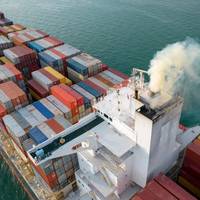
Countries on Friday adopted a revised greenhouse gas (GHG) strategy for shipping that sets a net zero emissions target "by or around 2050", which was viewed by environmental groups as falling short of what was needed. After days of discussion in London at U.N. shipping agency the International Maritime Organization’s (IMO) headquarters, member countries agreed to reach net zero "by or around, i.e., close to 2050, taking into account different national circumstances". Countries…
IMO Adopts New Measures to Cut Ship Emissions
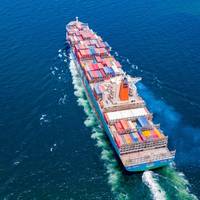
The U.N. shipping agency approved further measures on Thursday to boost the energy efficiency of commercial vessels although critics said the move fell short of what was needed to cut the industry's carbon footprint.The International Maritime Organization (IMO) formally adopted the rules to reduce the carbon intensity of existing ships after member states reached agreement on the plans at a virtual meeting this week.The measures add to already adopted energy efficiency regulations…
IMO Approves Extra Steps to Curb Shipping Emissions

The United Nations shipping agency on Tuesday approved measures to boost energy efficiency in vessels as part of efforts to reduce the industry's carbon footprint, a UN spokeswoman said.Countries approved the additional regulations to reduce the carbon intensity of commercial ships at this week's virtual Marine Environment Protection Committee (MEPC) session of the International Maritime Organization (IMO).Green groups opposed the approval, saying it would allow the shipping sector's share of emissions to keep rising over the next decade…
Ship Hull Cleaning: Shipowners Should Be Proactive to Improve Hull Performance
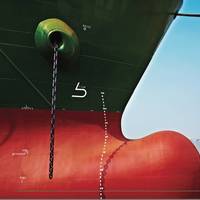
While owners have long recognized the link between clean hulls and lower fuel costs, lack of reliable data has slowed investments in optimizing hull performance. But with improved sensor technologies and data analysis tools, hull performance is getting a second look. Owners seeking to lower fuel costs and comply with pending regulations on emissions and invasive species often look to equipment manufacturers to meet their needs. From new efficient engine designs to alternative fuels, scrubbers to ballast water treatments systems, owners face some expensive decisions.
Ship Efficiency: Improve Hull Performance
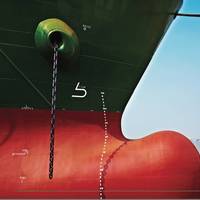
While owners have long recognized the link between clean hulls and lower fuel costs, lack of reliable data has slowed investments in optimizing hull performance. But with improved sensor technologies and data analysis tools, hull performance is getting a second look. Owners seeking to lower fuel costs and comply with pending regulations on emissions and invasive species often look to equipment manufacturers to meet their needs. From new efficient engine designs to alternative fuels, scrubbers to ballast water treatments systems, owners face some expensive decisions.
NGOs Furious on Lack of Arctic Action
The Clean Arctic Alliance expressed frustration over Members States’ failure to address the risk to the Arctic from emissions of black carbon from international shipping, after a meeting of the International Maritime Organization’s Marine Environment Protection Committee (MEPC 74) closed in London.A proposal by the Clean Shipping Coalition and Clean Arctic Alliance member Pacific Environment to immediately switch away from heavy fuel oil – a major source of shipping’s black carbon emissions – to distillate fuels did not garner adequate support from Member States.There was however, broad support among Member States for regulations to control black carbon emissions…
Fouling Control on Workboats
![(Biofouling photo - U.S. Navy photo by Mass Communication Specialist Seaman Apprentice Christopher Frost/Released [A sailor scraping barnacles from the bottom of a rigid-hull inflatable boat aboard an aircraft carrier.])](https://images.marinelink.com/images/maritime/w200h200c/biofouling-photo-us-navy-photo-90895.jpg)
As the domestic offshore energy industry stirs ever so lightly, the task of reactivating long-dormant vessels – some with extensive hull fouling – will become Job ONE. That’s easier said than done.Care and Preservation of Ship Hulls: Workboats vs. Deepwater VesselsNever before has there been such a wealth of data on the processes relating to the fouling of ship hulls. The formation of biofilms and subsequent micro- macro-and bio-fouling has been examined in minute detail and the…
CSC Welcomes Commitment to Decarbonise Shipping
The commitment by governments to require international shipping to decarbonise and at least halve its greenhouse gas emissions by 2050 is a welcome and potentially game changing development, the Clean Shipping Coalition (CSC) has said. But the lack of any clear plan of action to deliver the emissions reductions, including urgently needed short-term measures, is a major concern, according to the group of NGOs with observer status at the UN’s International Maritime Organisation (IMO). After two weeks of difficult talks, countries attending the IMO meeting in London agreed to require the shipping sector to reduce its emissions by “at least 50% by 2050 compared to 2008”. This falls short of the 70-100% cut by 2050 that is needed to align shipping with the goals of the Paris agreement.
Fast, Quick Action Needed to Meet Paris Climate Goals: CAN
The International Maritime Organisation (IMO) has agreed on an initial strategy to decarbonise international shipping and reduce emissions from ships by at least 50% by 2050. While this agreement falls short of the 70 to 100% reductions by 2050 that the Pacific Islands, the EU and others were calling for ahead of the meeting, it keeps a window open to meet the Paris climate goals and is undeniably a game changer for the shipping sector. This plan serves as a welcome first step to phase out emissions from the sector, but the IMO must now build on the agreed minimum target of 50% reductions in subsequent reviews of the strategy to comply with its fair share of emissions under the Paris Agreement.
Call for Carriage Ban on Non-Compliant Fuel
A group of leading environmental and maritime shipping organizations have called for the prohibition of transporting non-compliant marine fuels once the global 0.5 percent sulfur cap takes effect in 2020. The United Nation's International Maritime Organization (IMO) has agreed that from 1st January 2020 the maximum permitted sulphur content of marine fuel (outside Emission Control Areas) will reduce from 3.5% to 0.5%. Unless a ship is using an approved equivalent compliance method, there should be no reason for it to be carrying non-compliant fuels for combustion on board. The 2020 sulphur cap will provide substantial environmental and human health benefits as a result of the reduced sulphur content of marine fuels used from 1 Jan 2020.
71% of New Box Ships Exceed IMO’s 2025 EEDI -Study
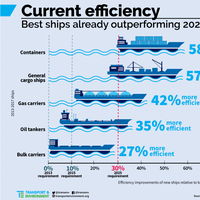
A new study has revealed that nearly three-quarters (71 percent) of all new containerships, which emit around a quarter of global ship CO2 emissions, are already in compliance with the post-2025 requirements of the International Maritime Organization’s (IMO) Energy Efficiency Design Index (EEDI). The study, based on analysis of the IMO’s own data and conducted by Transport & Environment (T&E), a founding member of the Clean Shipping Coalition (CSC), also found that the best 10 percent of new containerships are already almost twice as efficient as the requirement for 10 years time.
Ocean Conservancy Calls for Clean Arctic
“Ocean Conservancy welcomes steps taken by the International Maritime Organization to mitigate risks to the Arctic from the use and carriage of the world’s dirtiest fossil fuel. “Support for Measures to Reduce Risks of Use and Carriage of Heavy Fuel Oil as Fuel by Ships in Arctic Waters marks an important milestone in the bid to phase out the use of heavy fuel oil in the Arctic. “With climate change impacts resulting in record-breaking loss of sea ice—winter ice in the Arctic hit a record setting low in 2017 since records began 38 years ago—there will be a dramatic increase in vessel traffic through shorter Arctic sea routes to transport cargo between Southeast Asia and Europe. At present, around 75% of marine fuel currently carried in the Arctic is heavy fuel oil.
Ships 10% Less Fuel Efficient Than Those Built in 1990
New ships today are no more efficient than they were over twenty years ago, despite shipping industry claims to the contrary. The efficiency of new ships has deteriorated by 10% on average since 1990. The study also shows that containerships built 30 years ago already, on average, beat the "Energy Efficiency Design Index" (EEDI) standard set by IMO for new ships built in 2020. The study, "Historical trends in ship design efficiency," has been carried out by Netherlands-based CE Delft, which describes itself as an "independent research and consultancy organization specialized in developing innovative solutions to environmental problems." It was commissioned by Seas At Risk and Transport & Environment (both members of the Clean Shipping Coalition)…
CSC Calls for Shipping Industry Emissions Reduction Target
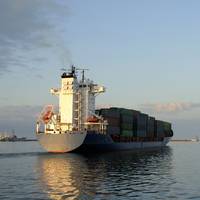
The Clean Shipping Coalition (CSC) is calling on ship owners and stakeholders gathering in Brussels for European Shipping Week to support an industry carbon emissions reduction target. The CSC, the global NGO coalition campaigning for cleaner shipping, said in a press release that as the only remaining major economic sphere yet to tackle its carbon emissions, shipping must act urgently to do their part to keep the global temperature increase below 2 degrees. Last year’s third…
IMO Urged to Provide Access to Efficiency Data

Shipping Fuel Transparency Will Lower Emissions and Cut Costs. NGOs call on shipping industry regulator to drive down costs, trigger improved fuel efficiency and reduce ship GHG emissions through efficiency data transparency. Transport & Environment, Seas at Risk and Carbon War Room are urging the International Maritime Organisation (IMO) not to withhold data on ship efficiency and fuel consumption. The call for action follows moves by some industry groups to undermine initiatives…
Environmentalists Critical of Draft IMO Polar Code
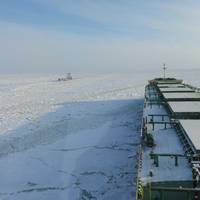
The new draft ‘Polar Code’ of safety and environmental rules, issued on 24, January 2014, fails to address the looming danger of having non ice-strengthened and poorly prepared ships in supposedly ‘ice-free’ polar waters, environmental organisations have warned. The final draft, drawn up by the International Maritime Organisation (IMO), governs ships operating in Arctic and Antarctic waters. Increased shipping activity poses significant new threats to the polar environment and wildlife through oil spills, black carbon deposition, sewage discharges and the introduction of invasive species.
IMO Symposium Debates Sustainable Maritime Transportation System
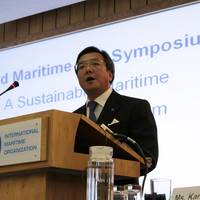
An IMO symposium on a Sustainable Maritime Transportation System, held on world Maritime Day (September 26, 2013), provided an opportunity for a discussion on a global agenda for a sustainable maritime transportation system. The symposium reflected the world Maritime Day theme: “Sustainable Development: IMO's contribution beyond Rio+20”. IMO Secretary-General Koji Sekimizu told the symposium that shipping, and port industries were vital links in the global supply chain, the complex mechanism without which today’s inter-dependent, global economy would be simply unable to function.
One Step Closer to Hull and Propeller Measurement Standards
Jotun released a statement welcoming action taken by the International Standards Organization to mobilize an expert group to start work on a common industry standard for measurement of changes in hull and propeller performance. Jotun, in cooperation with the Bellona Foundation (Bellona) and Standard Norway, has been successful in mobilizing shipping industry stakeholders in an effort to reach general agreement on a method for measuring changes in hull and propeller performance, the company said. By improving hull and propeller performance, the world fleet can reduce fuel cost by as much as $30 billion per year and achieve an estimated 0.3% reduction in manmade GHG emissions.
NGO's Condemn IMO Environmental Implementation Delays
The International Maritime Organisation (IMO) today decided to postpone the entry into force of nitrogen oxide (NOx) emissions limits for ship engines from 2016 to 2021. Environmental NGOs Transport & Environment (T&E) and Seas at Risk, founding members of the IMO observer organisation Clean Shipping Coalition, condemn IMO’s decision and now call on the EU to adopt its own NOx limits for cleaner air. The decision taken at a meeting in London of the IMO working group reviewing MARPOL Annex VI [1], adopted in 2008, delays the introduction of stricter NOx emissions limits for engines of ships built from 2016 when sailing in so-called ‘NOx Emissions Control Areas’. Currently the North American coastline is such an area, and the Baltic Sea might be designated to be one.






